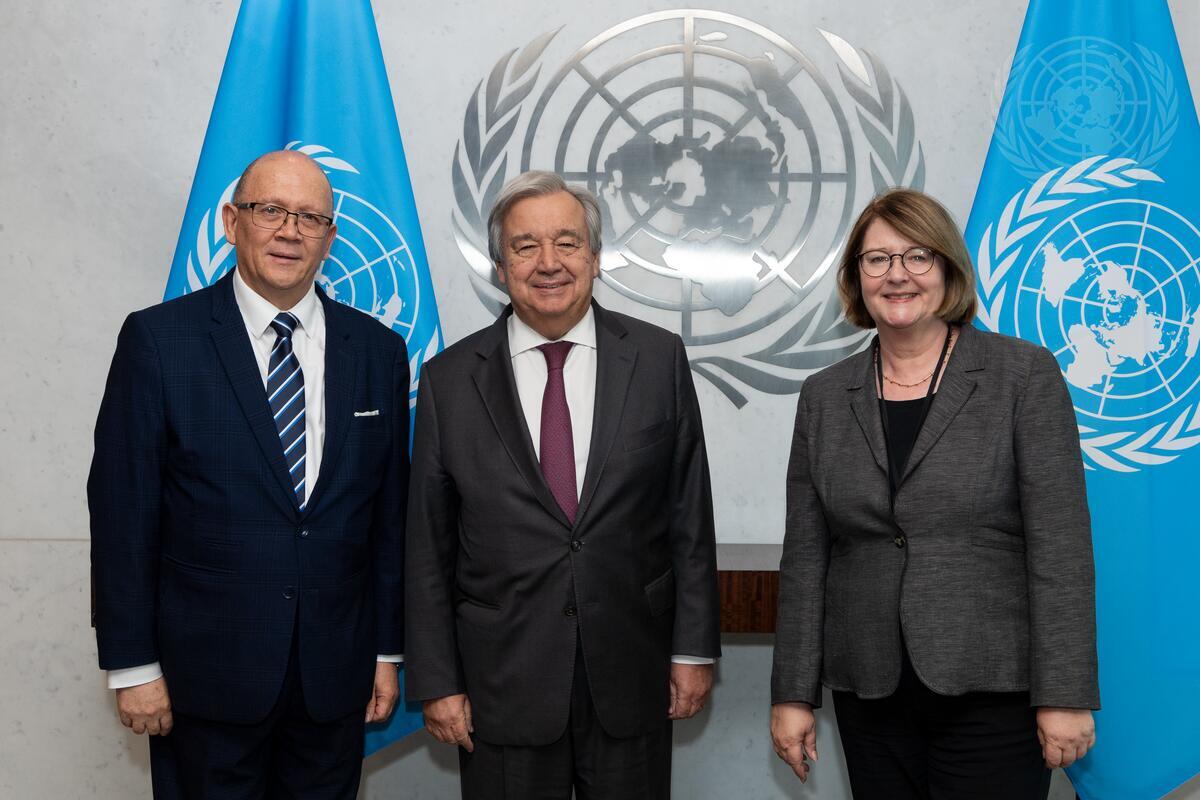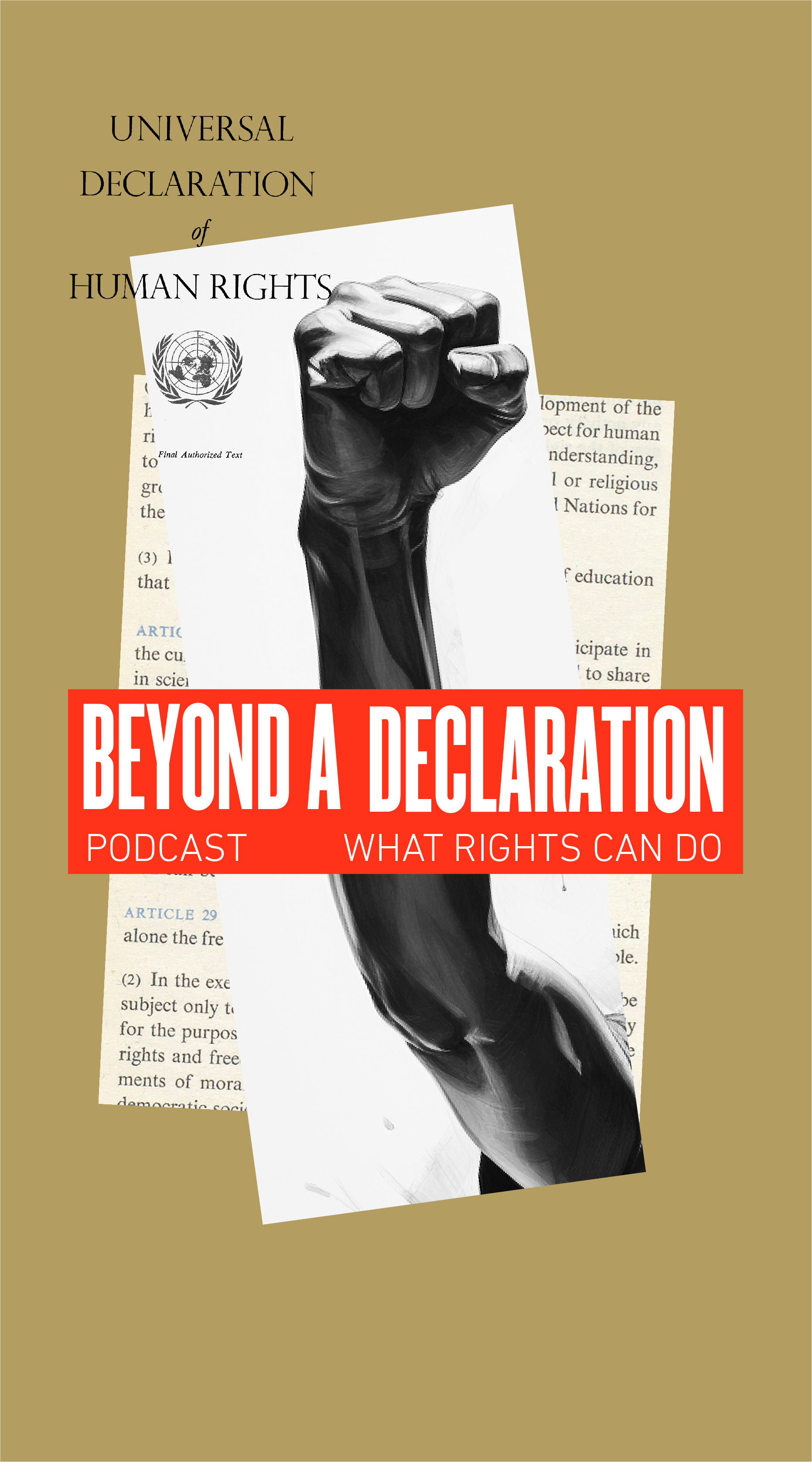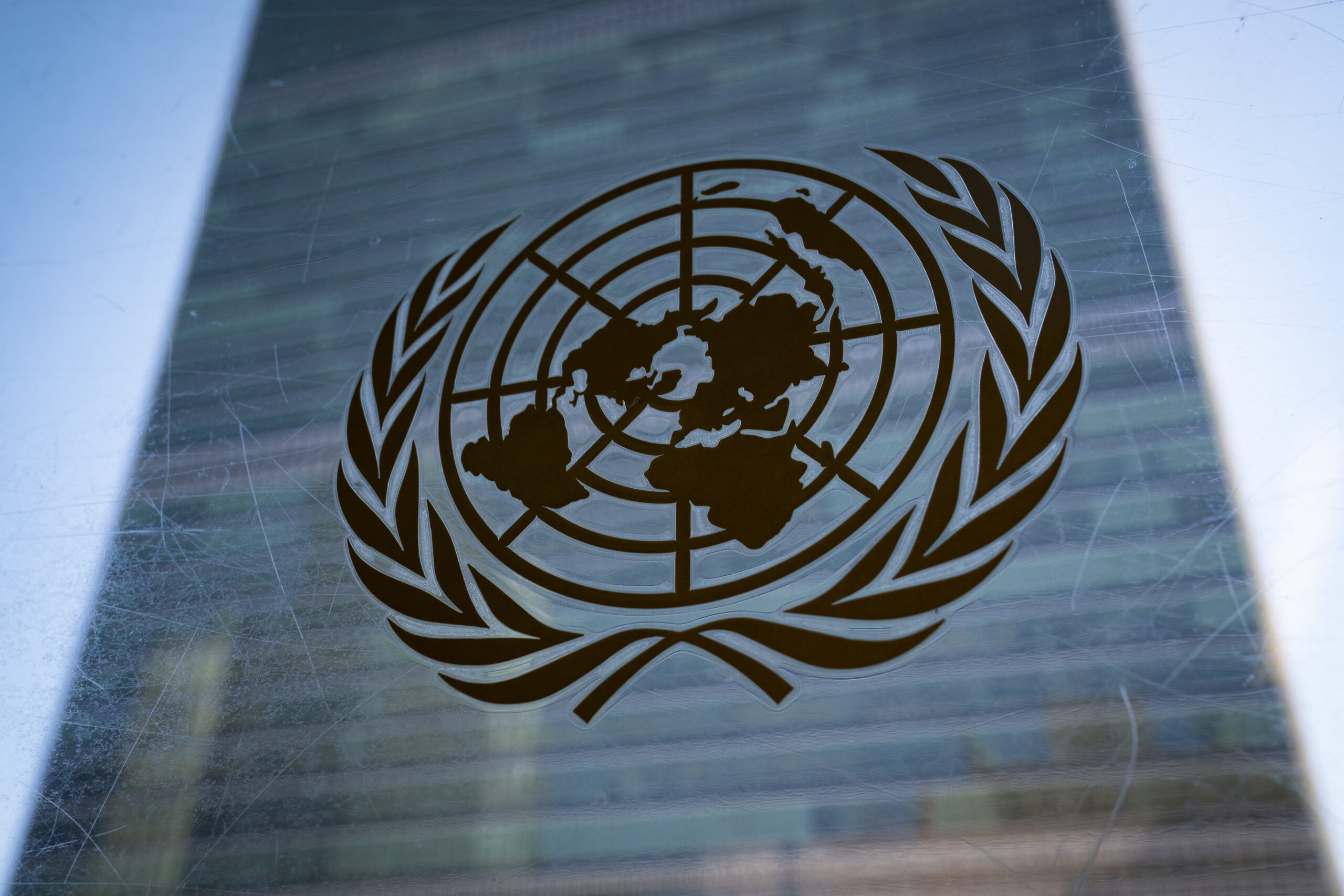For photos from this event, go to our Flickr page.
For the 2018 Joint Declaration of the Indigenous Women Leaders at the UNPFII, go to the bottom of the page.
For the sixth consecutive year, the Rosa Luxemburg Stiftung—New York Office, together with the international women’s rights organization MADRE, will welcome a delegation of Indigenous women leaders from across the world to participate in the 17th session of the United Nations Permanent Forum on Indigenous Issues (UNPFII) at the UN Headquarters in New York. This session will focus on the theme “Indigenous peoples’ collective rights to lands, territories and resources.”
The Permanent Forum on Indigenous Issues is an advisory body within the UN system that reports and submits recommendations to the Economic and Social Council (ECOSOC). Since RLS–NYC and MADRE both hold consultative status with the ECOSOC, the delegation will be able to take part in all official meetings and events.
The six delegates—women leaders from Africa (Kenya and Cameroon), Asia (Nepal), and the Americas (Nicaragua and USA)—will engage in advocacy work at the UNPFII with the goal of influencing discussions around this topic by adding a gender perspective.
Additionally, we are organizing a number of events for the delegation, including a meeting with the UN Special Rapporteur on the Rights of Indigenous Peoples, Victoria Tauli-Corpuz, and an official UNPFII side event.
Official Side Event:
Local and Global Strategies for Countering Migration and Displacement
Over the past decade, migration and displacement have been steadily rising as a result of global developments, leaving people and communities homeless and destitute all over the world. Indigenous women are particularly affected by a broad range of intersecting issues associated with violations of their land and property rights, and their struggles resonate with those of other rural and urban communities across the world that have been impacted by the persistence of profit-seeking economic and social policies.
This panel will present strategies devised by communities as well as community-based and civil society organizations to fight actors and policies that threaten the autonomy and livelihoods of vulnerable peoples. Looking into different experiences of migration and land dispossession in the context of development, this panel analyzes counter-strategies at the local, national, and international levels. It will highlight the contributions of frontline communities in safeguarding the human rights of those affected by the specter of dispossession and in imagining new forms of value as well as social relations that can challenge the structures of the current economic system. The goal is to explore how we can create new channels of solidarity and power in the fight for gender and racial justice.
When: Wednesday, April 18th, 2018 at 11:45 am – 1:00 pm
Where: Conference Room 8, United Nations Headquarters, NYC
With simultaneous English – Spanish translation.
On April 18, the RLS–NYC & MADRE Delegation of Indigenous Women Leaders addressed the UN Permanent Forum on Indigenous Issues (UNPFII) with a joint statement on critical issues related to sustainable development, economic empowerment, and the human rights of environmental defenders, as they affect the realization of the rights of Indigenous women and girls worldwide. Below, the full text of the statement:
Statement on behalf of Indigenous Women Delegation
17th Session of the UN Permanent Forum on Indigenous Issues
Thank you Madame Chair. I would like to take this opportunity to congratulate you on behalf of our international delegation of Indigenous Women present in NY for being re-elected as chair of this 17th session.
We, Indigenous women from Cameroon, Kenya, Nicaragua, Nepal and the United States would like to address the UN Permanent Forum on Indigenous issues regarding critical issues that Indigenous women and girls face in relation to land, territories and natural resources around the world.
Madame Chair, globally Indigenous women are at the forefront of movements modelling sustainable environmental solutions, and are key in practicing models that are pertinent in halting climate change. Indigenous women continue to persevere as they struggle and face the worst impacts of climate change with the increasing degradation of their own land and territories. In addition, Indigenous women and girls remain discriminated against because of traditional cultural practices that do not allow them to own any productive resources like land. If we are committed to make progress in achieving is sustainable development goals and the agenda 2030, it is the responsibility of governments to put in place legal protections safeguarding the right of women to own and inherit land without any barriers.
We welcome the agreed conclusion from the 62nd session of the Commission on the Status of Women (CSW), calling on promoting and protecting the rights of Indigenous women and girls addressing the multiple and intersecting forms of discrimination and barriers that we and our girls face while acknowledging the vast contributions of Indigenous women to many areas of conservation, sustainability, food security and improved nutrition. We believe that Indigenous women and girls must have a voice in policies that affect their lives.
We call for the following recommendations:
- We call on Member States and UN Agencies to include Indigenous women and girls, youth, elders and traditional keepers in implementing and decision making processes within national and international legal frameworks focusing on securing, protecting and demarcating Indigenous peoples land.
- We reiterate that the UN Permanent Forum works closely with other UN Agencies in collaboration with Indigenous Peoples Organizations to establish a monitoring mechanism that oversees the implementation of UN Declaration on the Rights of Indigenous Peoples and the actions taken in ensuring free, prior informed consent on what is an increasing number of development projects on Indigenous lands resulting in land grabbing, violations and displacement of Indigenous Peoples.
- We urge the UN Permanent Forum to work closely with UN Agencies and in collaboration with Indigenous Peoples organizations to prevent, recognize, and monitor the high levels of global violence and threats faced by and directed at Indigenous Women Human Right defenders. We call for an immediate halt to the criminalization, incarceration, intimidation, coercion, death threats and assassination of all Indigenous human and environmental rights defenders from developed and developing countries who are protecting their homelands, communities, future generations, and life-giving processes from environmental destruction and contamination.
- We call on Member States, UN Agencies and the Permanent Forum to ensure that efforts of conservation practiced by International Organizations, and encouraged by International agreements are inclusive of Indigenous People’s rights. It is of crucial importance that the process recognize and respect customary and community land rights while acknowledging the important role Indigenous women play in maintaining and conserving biodiversity and other natural resources.
- We call on Member States, UN Agencies and the Permanent Forum to hold multinationals and agribusiness accountable for not involving Indigenous Peoples in a free, prior, informed consent mechanism prior to engaging in any development projects in Indigenous peoples’ land and territories.
Indigenous Women Delegation 2018:
Yasso Kanti Bhattachan (National Indigenous Women Forum, Nepal)
Leduvina Guill Zamora (Wangki Tangni, Nicaragua)
Aehshatou Manu (Mbororo Social and Cultural Development Association-MBOSCUDA, Cameroon)
Kandi Mossett (Indigenous Environmental Network, USA)
Lucy Mulenkei (Indigenous Information Network, Kenya)
Kamala Thapa (National Indigenous Women’s Federation, Nepal)



